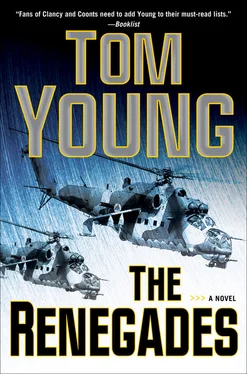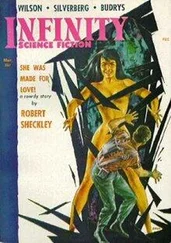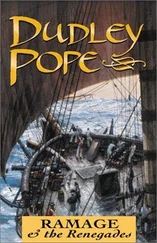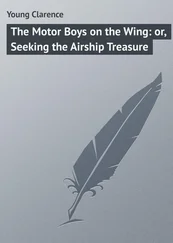Parson fell against the cargo of food. He drew his Beretta and pushed himself away from the stacks of rations. Behind him, one of the civilians shouted, “What’s happening?” The dog yowled.
The helicopter banked left, turned hard right, yawed. Something smacked into its chin. Absurdly, Parson caught a whiff of Himalayan cedar. He realized they’d skimmed the top branches of that tree.
He braced himself against the flight deck bulkhead, brought up his pistol with both hands. Parson leveled the weapon at Aamir, thought to punch a round right through that bastard’s helmet, through his brain, and out the other side. But just as he placed the joint of his finger to the trigger, the copilot did a strange thing. He took his hands off the controls, raised his arms. Tears streamed down his face. He uttered syllables in Pashto that sounded like pleading.
Parson took his finger off the trigger but still pointed his pistol at Aamir. Maybe the man had just gone crazy.
Whatever the hell had just happened, Parson knew Rashid couldn’t explain it now. The Mi-17 teetered on the ragged edge of controlled flight, and Rashid fought to recover it. The chopper pitched down, banked, and then climbed. It veered toward the valley wall, a steep rim of mountains. Rashid pulled up hard to avoid an outcropping.
Too hard. The Mi-17 shuddered and pitched up higher. Rashid dropped the collective lever. The helicopter leveled and slowed, just above a rock ledge. It began descending toward the ledge.
Rashid twisted the grip throttle on the collective, adding power. The engines screamed. The chopper kept descending.
What the hell was the problem? At this moment Parson couldn’t help Rashid, could only stay out of his way and try to hold the weapon on Aamir. He wasn’t even sure what was wrong, until he remembered an aerodynamic weirdness about helicopters: settling with power. If a helo descended too quickly, the chopper’s own downwash kept the rotor blades from generating lift.
Satan himself might have designed this special hell for pilots. All your instincts told you to add power. And more power made it worse. Right now the aircraft had the flight characteristics of a brick. The only way to recover was to fly out of the vortex. And that required altitude Rashid didn’t have.
The Mi-17 hit the rock ledge so hard, Parson collapsed to his knees. His kneecaps still hurt from the first time he’d fallen, and the pain made him nauseated. Rotor blades disintegrated as they crashed into a wall of stone just above the ledge. Metal splinters and rock chips gouged the windscreen.
Parson turned to his right, scanned for fire. No flames, no fuel odor. He still held on to his Beretta. His headset cord coiled around his shoulder. He could see Rashid and Sharif reaching across the panels, shutting down the aircraft, jabbering in Pashto.
One of the civilian passengers held his leg, cursed. The other civilian peered outside, perhaps worried about enemy nearby. The crew chief looked stunned. He leaned on his weapon, swiveled the door gun on its mount. The engines’ turbines whined down to silence. Parson heard groans and profanities. Reyes unbuckled his seat belt, checked his rifle. The dog whimpered in its kennel, trembling.
Then for a moment, no one spoke. No sound but the moan of wind as it coursed over the ridge and swirled around the wreckage. A gust rocked the bent cabin of the Mi-17. Parson felt it shear through the open door. The wind caressed his cheek and tousled his hair.
An unseen specter seemed to touch him, mock him, whisper threats and condemnations. He had heard Gold talk about Muslim mythology, jinns and spirits. Now one of them swept through the Russian-built helicopter, and its passing left Parson amid his worst memories and greatest fears.
All five of Gold’s senses worked, but not together. The inputs did not compute. She heard muffled shouts, grinding noises. The Cougar filled with dust. The dust carried a burning smell, but Gold saw no fire. She had a metallic, chemical taste in her mouth. Where did that come from? She held on to her seat; she could feel its frame through her gloves. She felt pain from… somewhere. Her head. Her head hurt.
She realized her helmet had slammed against a bulkhead inside the vehicle. Her mind began to clear, the facts to connect. They’d run over a roadside bomb. Would an ambush follow?
Now she recognized the voices. The loudest was Blount’s: “Gunner, you all right?”
No answer, but the gunner’s boots moved around on the turret stand. He was still on his feet.
More voices on the radio: “IED! Two’s hit.”
“Cover the left!”
“Got it.”
The Cougar rested at an angle. It must have rolled into the ditch. Lyndsey got up. Ann appeared unconscious. Gold unbuckled, clicked the fire selector on her rifle.
She looked out the window, saw no enemy. From the radio, she knew the gunners on the undamaged vehicles watched for bad guys. She heard no firing, so she went to the back of the vehicle, pulled a quick-release pin, and kicked open the ramp.
The blast had carved a crater that could have swallowed a small pickup. The pit of stones and fresh soil looked almost like something at a construction site. Sometimes insurgents used a particularly evil type of bomb known as an explosively formed penetrator, which could send molten copper right through armor. Gold doubted this bomb had been an EFP. Still, she was amazed the Cougar hadn’t overturned. More importantly, the interior hadn’t been breached. Evidently the V-shaped hull had divided and deflected the force of the blast.
Gold stepped down the ramp, still a little unsteady on her feet. She felt numb, tried to gather her thoughts. Glanced up at the gunner. He remained at his weapon, but he looked woozy. The man leaned back in the turret. Blood ran from his temple. He wiped at it and examined his fingers.
Marines from the other two vehicles ran toward Gold. Others stopped, pointed their rifles left and right of the road. Still no shots fired. So it could have been a lot worse, she thought. Occasionally, terrorists would rain fire on a vehicle after the bomb had hit it. Gold supposed this road was so seldom traveled that insurgents didn’t bother to man a kill zone. They probably hadn’t planted a command-detonated bomb, just a pressure plate left waiting for something to drive over it.
“Are you all right, Sergeant Major?” a Marine asked.
“I think so,” Gold said. “Check the gunner. One of the lance corporals inside might need some help, too.”
More grinding and crunching came from underneath the vehicle. Sounded like a blown-out transmission. The wheels didn’t move at all. Even if they had moved, the Cougar could not have gone far. Some of the tires were burned and torn away.
“Shut it down,” Blount said to the driver. “This thing ain’t going nowhere.” The engine clattered to a stop.
A corpsman walked up the ramp and entered the vehicle. He was the same medic who’d treated the wounded when Rashid’s helicopter got hit at Ghandaki.
Gold placed her weapon back on SAFE, then followed the medic back in to check on Ann. She sat up now. No blood, no obvious injury. The corpsman kneeled in front of her. He shone a light into her eyes, then held up two fingers on his left hand.
“How many fingers am I holding up, Lance Corporal?” he asked.
“Two.”
“What day is it?”
“Monday.”
“Good. Keep your head still. Follow my fingers with your eyes.”
He moved his hand up, down, left, right. Ann’s eyes, a little bloodshot but apparently working, tracked the movement.
“TBI?” Gold asked.
“Too early to tell,” the corpsman said. “She’s all right from what I can see now.”
Читать дальше












